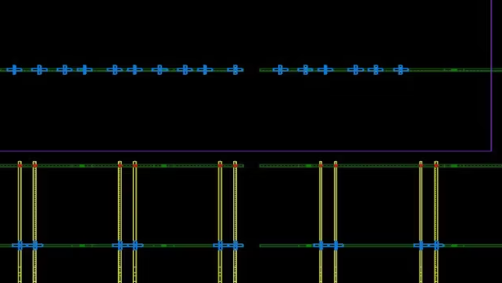Embedded Vision Alliance Summit 2015: Santa Clara, California, May 12, 2015 – CogniVue Corporation, a leader in embedded vision which licenses its APEX™ Image Cognition Processor (ICP) technology to semiconductor vendors, announced that its new APEX Processing Core – Opus – is at the center of the intense battle for Advanced Driver Assistance Systems (ADAS) market share as challengers to Mobileye, the current market share leader, line up to capture business for next-generation ADAS systems.
“Freescale’s S32V234 automotive vision processor is already benefitting from the performance per power advantage of the APEX image cognition processor technology with support for OpenCL,” commented Matt Johnson, Vice President and General Manager – Automotive MCU at Freescale. “We see the need for continuous improvements in performance and expect this to continue with CogniVue’s next generation APEX core.”
Next generation ADAS systems will provide a range of critical new autonomous driving functions requiring orders of magnitude more performance than previous offerings. The Opus APEX core from CogniVue with its dramatic advances in performance per power arrives at a critical time in this disruption of the ADAS market.
“CogniVue APEX technology provides significant performance per power advantages for Advanced Drive Assistance Systems (ADAS) market,” said Wayne Dai, president and CEO of Verisilicon. “As a Silicon Platform as a Service (SiPaaS) company, Verisilicon provides custom silicon solutions and end to end semiconductor turn-key services for automotive electronics, integrating our HD audio, HD video, and HD voice IPs with CogniVue APEX imaging and vision processing technology.”
The CogniVue Opus APEX core delivers an unprecedented level of performance per power for embedded vision processing, enabling its semiconductor customers to leap frog the latest silicon offerings from Mobileye. In turn, Tier 1 competitors to Mobileye will have the System on Chip (SoC) platforms they need to develop CogniVue-based ADAS systems to seize market share from Mobileye.
Opus APEX is driving a 5x-10x increase in performance per power vs the previous G2-APEX, and directly benefits from the tools and ecosystem that CogniVue has built around their successful APEX line. This the unique APEX Core Framework algorithm development tool that automates algorithm optimization on the APEX architecture, APEX-CV with its broad range of image and vision processing algorithms, and the growing APEX Partner Program with “APEX-Certified” software IP and design services providers.
“Neusoft has already developed ADAS applications on the existing APEX ICP core,” said Professor Huai Yuan, Director of Advanced Automotive Electronic Technology Research Center, Neusoft, one of CogniVue’s APEX Partners. “We expect new autonomous vehicle applications will take full advantage of the additional performance per power improvement in what is already a leading vision processor technology.”
“CogniVue has been anticipating this ADAS market showdown and we are ready to equip competitors to Mobileye with the performance and cost advantages they need to capture new ADAS opportunities,” said Simon Morris, CEO of CogniVue. “We have the innovation, technology and engagement with dominant players in the automotive market and key SoC suppliers to be a key enabler of next-generation ADAS and autonomous driving.”
The Opus APEX core will be available later in 2015 and its introduction is timed well for a wave of next generation systems from Tier 1’s vying for their share of a rapidly growing ADAS and autonomous driving market.
About Opus APEX Image Cognition Processing Core
Opus is the next-generation of APEX ICP technology with a 10x performance increase over the current G2-APEX. Building on its expertise in automotive safety applications and working collaboratively with major automotive Tier-1s and OEMs, CogniVue’s team has further improved APEX ICP architecture, hardware blocks and added new features for this next-gen core that drives unprecedented performance and scalability. Customers are able to license a range of Opus APEX configurations to best suit their application requirements by scaling both the vector and scalar performance, and now also connect multiple APEX cores together for even higher performance. CogniVue also continues to invest in providing the most comprehensive solution with support for C/C++ language, OpenCL programming as well as the APEX Core Framework, CogniVue’s powerful algorithm development tool, and the ever expanding APEX-CV kernel and value-add algorithm software libraries. Combined together this comprehensive offering reduces time to market and development cost for CogniVue’s customers.
About CogniVue Corporation
CogniVue is a leading innovator in embedded vision processing, providing both semiconductor processor technology IP, tools and software that enable its customers to develop high-performance, low-power embedded vision applications for automotive, consumer and industrial markets. With its strong expertise in embedded vision and its APEX development tools, CogniVue enables developers to design innovative, previously implausible vision products like smart pens and smart back-up cameras.
CogniVue is a privately held company headquartered in Ottawa-Gatineau, Canada. For more information, visit www.cognivue.com




